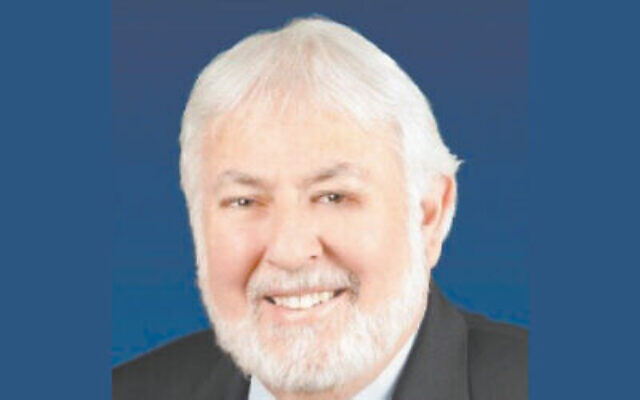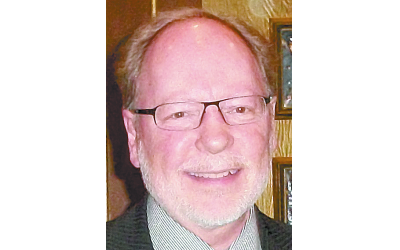Rabbis Criticize Letter on Killings, Protests
The Atlanta Rabbinical Association was one of five organizations that signed the letter, but not every rabbi agreed with its message.
Dave Schechter is a veteran journalist whose career includes writing and producing reports from Israel and elsewhere in the Middle East.

Less than 48 hours after five Jewish organizations in Atlanta issued a statement in response to the death of an African American man under the knee of a Minneapolis police officer, its authors received a rebuke from one rabbi and an endorsement of that criticism by another.
The signatories to the original statement issued the morning of June 1 were the Jewish Federation of Greater Atlanta, the Atlanta Rabbinical Association, the Anti-Defamation League Southeast region, the American Jewish Committee regional office in Atlanta, and the Jewish Community Relations Council of Atlanta.
The community letter said that the killings of George Floyd, Breonna Taylor, and Ahmaud Arbery are “part of a pattern of systemic violence against Black Americans that cannot continue. We cannot stand idly by these and countless other transgressions against our Black brothers and sisters.
“Police brutality against Black Americans is the most visible manifestation of institutional racism,” the letter said, going on to say that, “Misguided and immoral public policy that preferences white Americans over people of color and contributes to ongoing inequities must come to a swift end.”

Late on the night of June 2, Rabbi Shalom Lewis, rabbi emeritus at Congregation Etz Chaim (who retired in June 2019), sent the signatories an email that objecting to the tone of the statement and citing what he felt a serious omission.
Soon after, Lewis’ criticism was endorsed in an email by Rabbi Ilan Feldman of Congregation Beth Jacob.
The AJT received copies of the email thread, which spread beyond its initial recipients.
The subject line on Lewis’ email — addressed to “Colleagues and Friends in the ARA and beyond” — was “Dam Reyecha,” taken from the Torah portion Vayikra in the book of Leviticus (19:16), which includes the admonition: “Do not stand idly by the blood of your neighbor.”
“I waited a day to calm down but remain appalled and embarrassed by the text,” Lewis began, going on to call it a “shameful expression” that “relies on pandering generalizations, progressive doctrine and untruths.”
Lewis wrote that “the opportunity of rare unity was lost by an orgy of pillaging, arson and urban rape that was ignored by the authors and agencies that send out this document. The rampage became the face of the protest not the lifeless body of George Floyd.
“The chutzpa of community leaders assuming they speak for all of us resulted in an inarticulate undeserved Mea Culpa that ignored the hijacking of legitimate, peaceful protest,” Lewis continued.
Lewis concluded by saying: “From the Oval Office down Blacks have found a place in American society albeit an imperfect society in need of much improvement. In mere decades we have come a great distance from a Woolworths lunch counter and a [Alabama] bridge. We must celebrate the change and not slacken in the effort to bring every American of every color across the Jordan to the Promised Land. But that day will not come by issuing sanctimonious statements that ignore thuggery, blame law enforcement and dismiss the destruction of our great cities. I doubt our prophets and Martin Luther King would find comfort and hope in this irresponsible, reckless text.”
Soon after, Feldman replied to the recipients: “Shalom, I applaud your courage. Thank you for saying what needs to be said, to say it with passion, and for the willingness to stand for integrity. If I would have said those words (and I doubt I ever would have been so eloquent), they would have been dismissed as the predictable ravings of an extremist Orthodox rabbi. Group-think is a powerful thing. It takes no courage or moral clarity to parrot clichés.”
The AJT sought comment on Lewis’ response from each of the five groups that issued the original statement, as well as asking the two rabbis if they wanted to elaborate on what they said in their emails.

Rabbi Laurence Rosenthal of Ahavath Achim Synagogue, who is also president of the Atlanta Rabbinical Association, said, “I really appreciated Shalom’s willingness to speak up. The community message referenced was representing felt feeling and values that the authors identified and believed we needed to be articulated clearly at this difficult time. Of course, a community as diverse and large as ours has a myriad of perspectives so no one statement can capture them all. Shalom is giving voice to others in our community. Ultimately that is what this is all about.”
A statement issued by the Federation said: “We are fortunate to live in a community of people who care deeply, and we welcome a diversity of perspectives, and above all dialogue. Our intent in invoking Dr. King’s commitment to nonviolence was to get across that injustice cannot be solved by more injustice and that violence and vandalism cannot be allowed to distract from the important message that must be sent. This is such a difficult time, and we hope that people will continue to listen to one another, give some grace, and find constructive and peaceful ways to make their voices heard.”

Harold Kirtz, president of JCRC of Atlanta, said that Lewis’ objection “signals how much work needs to be done in recognizing our own part in systemic racism. In no way do any of our Jewish institutions condone violence or looting,” he wrote to the AJT. “These criminal actions are committed by law violators who take advantage of unrest and volatile emotions. The looting of Jewish stores in some cities is a crime worth pursuing by law enforcement; and the antisemitic graffiti in several locations and captured by various media is also disturbing.”
“The issue at hand is the deeply embedded racism that our society as a whole must deal with in substantive and substantial ways. The 99 percent of demonstration participants have been peaceful and earnest protestors, and the magnitude of the protests throughout the nation raises hope that much will be done. To condemn statements of support because they lack mention of the 1 percent is short-sighted, as Rabbi Lewis’ comments have done. The uncomfortable truth is that all of us must change our mode of thinking in order to meet the challenges raised by systemic racism in society,” Kirtz said.
Feldman said that his comments “were made among colleagues,” adding, “I don’t think a public forum is the best way to have this conversation.”
Lewis told the AJT that he understood why the five organizations felt compelled to issue a statement.
“I don’t have a problem with that at all, on a significant issue and a piece of American history,” Lewis said. “The problem with something like this is that it’s crafted rapidly, because of the urgency of the moment, not that much thought goes into it. . . . What is sacrificed, I think, is wisdom and a statement that unassailably has the moral high ground.”
The community letter issued by the five organizations cited “Black-Jewish solidarity during the Civil Rights movement,” and said, “Our tradition compels us to actively fight racism and systemic injustice. As our sages taught, “It is not incumbent upon you to complete the work, but neither are you at liberty to desist from it.” Segments of our community have been active in this fight, and the entire Jewish community is called to re-engage in this effort.”
As did Lewis, the community letter ended with a reference to the civil rights leader from Atlanta: “‘We adopt the means of nonviolence because our end is a community at peace with itself,’ said Rev. Martin Luther King, Jr. ‘We will try to persuade with our words, but if our words fail, we will try to persuade with our acts.’ Let us channel the fear and anger of this moment into real change,” the letter said.
Lewis told the AJT, “I am associated with a document I find repugnant in words of commission and the words of omission. The most flagrant absence, transgression of this document, is there is no mention whatsoever of the rioting and the violence that has ensued, not a word.
“When you are dragging me down a path I do not wish to go down, it’s a problem,” he said.
Rabbi Dan Dorsch, who succeeded Lewis as senior rabbi of Etz Chaim, told the AJT how he views the path being taken by the Conservative congregation in Marietta. “We are a congregation of nearly six-hundred families with a wide variety of perspectives and opinions, but who are united in our belief in B’tselem Elohim, the importance of according dignity to all human beings the world over. As Jews, we always stand with those who advocate for a more just society,” Dorsch said.
- Atlanta
- Minneapolis
- Black lives matter
- Atlanta Rabbinical Association
- Anti-Defamation League Southeast
- American Jewish Committee
- Jewish Community Relations Council of Atlanta
- George Floyd
- Breonna Taylor
- Ahmaud Arbery
- congregation etz chaim
- Rabbi Laurence Rosenthal
- Rabbi Shalom Lewis
- Ahavath Achim Synagogue
- Harold Kirtz



comments